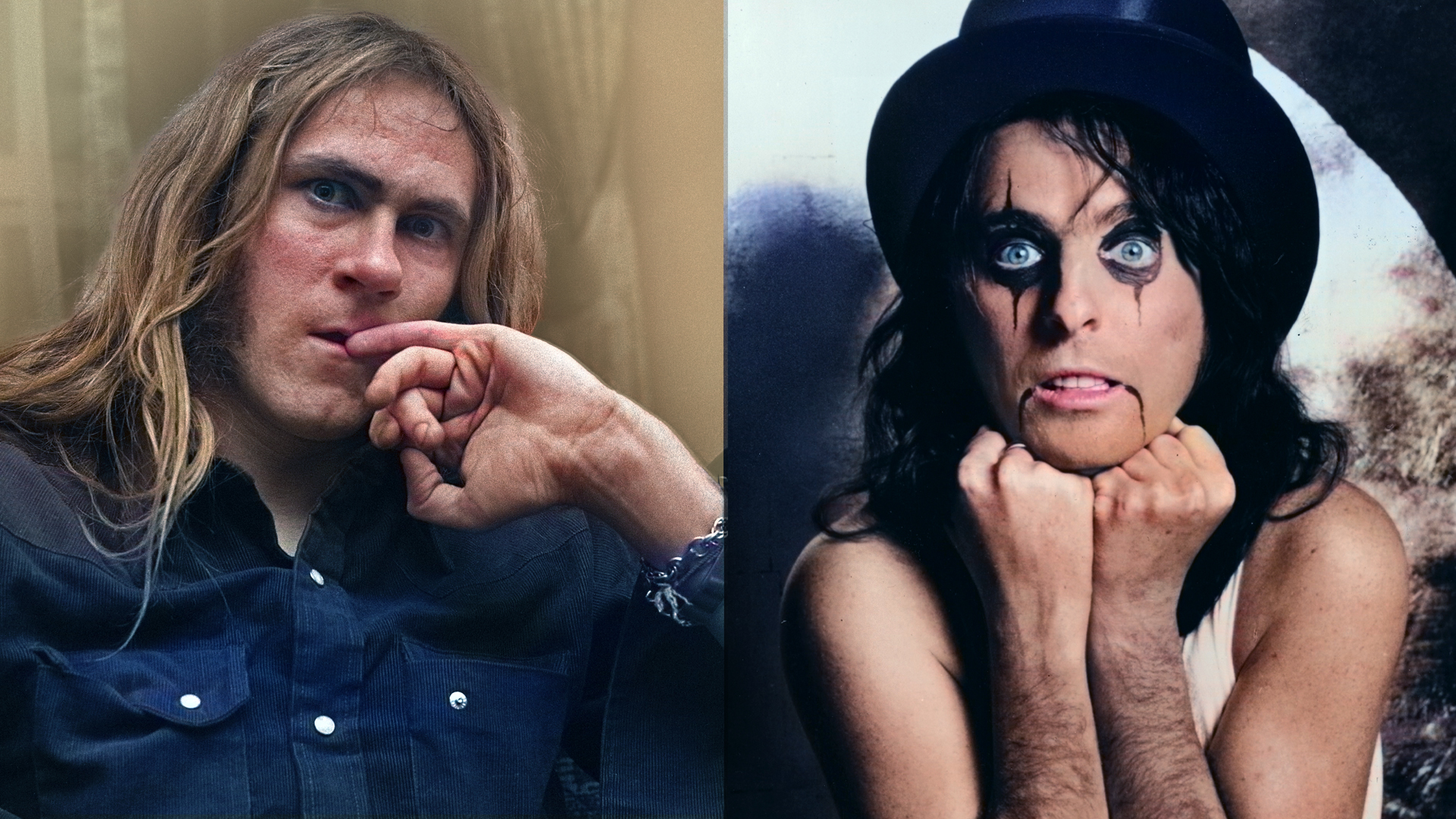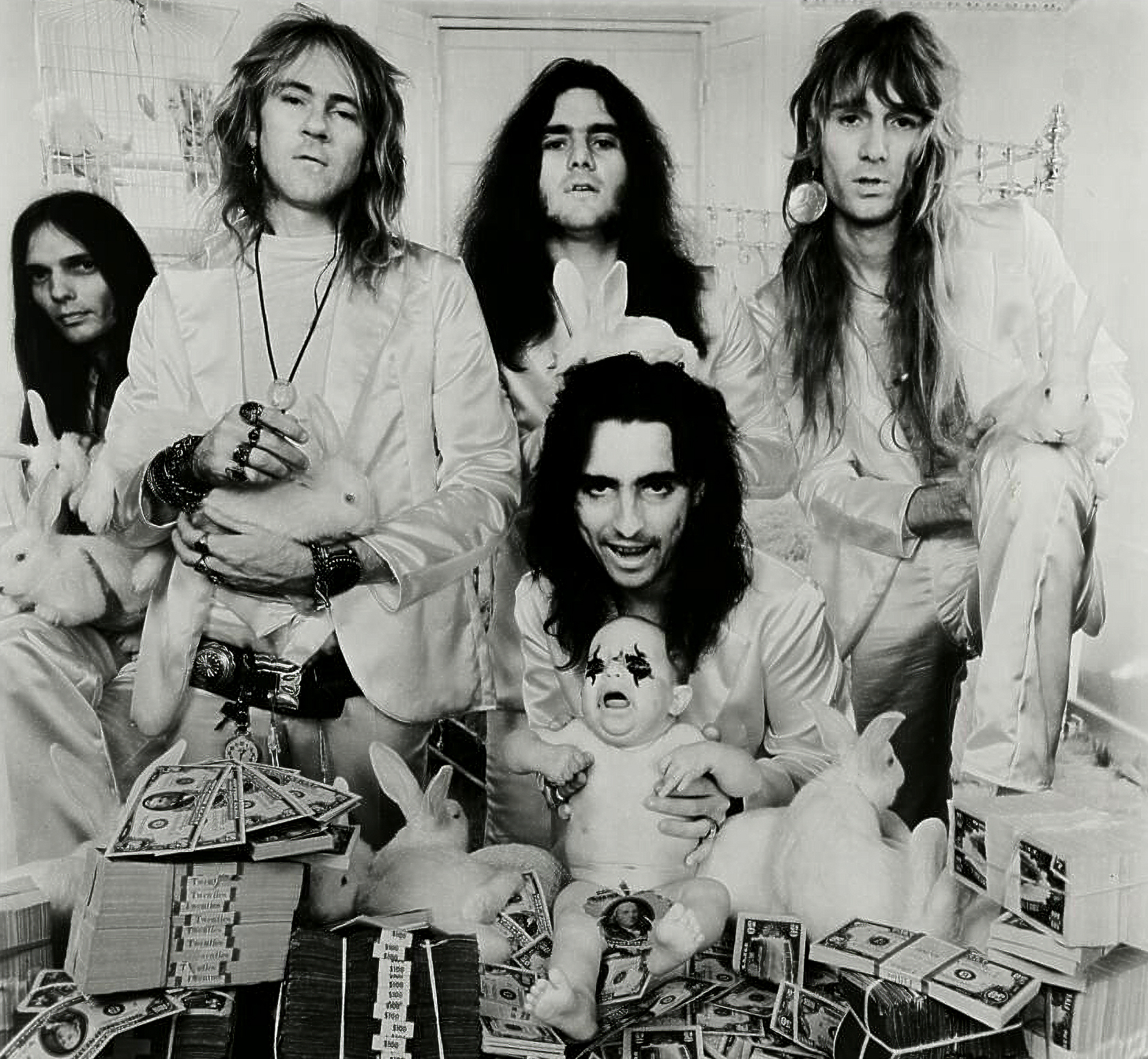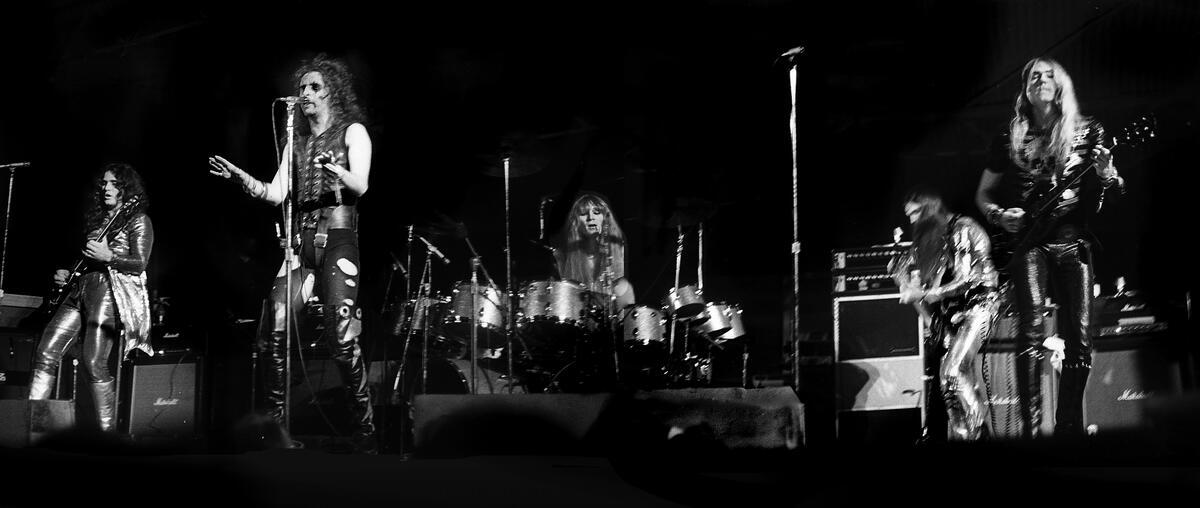“His spirit was in the room with us the whole time.” The late Glen Buxton makes an appearance on the new Alice Cooper album, courtesy of a rediscovered guitar riff
A 15-second snippet guitar work by Buxton, who died in 1997, brought him back into the fold for the original group's first album in 52 years

All the latest guitar news, interviews, lessons, reviews, deals and more, direct to your inbox!
You are now subscribed
Your newsletter sign-up was successful
Glen Buxton passed away on October 19, 1997, at the age of 49, leaving behind a legacy of unique electric guitar playing and songwriting from 1968 to 1974 with the original Alice Cooper band.
But you’ll find him playing again on two songs from The Revenge of Alice Cooper, the upcoming first album in 52 years by the four surviving band members.
“His spirit was in the room with us the whole time,” says Bob Ezrin, the producer behind the group’s key 1970s albums, including Love It to Death, Killer, School’s Out and Billion Dollar Babies. “We talked about him more than we talked about anything else, I think.”
Cooper, guitarist Michael Bruce, bass guitar player Dennis Dunaway and drummer Neil Smith also spent some time listening to Buxton during sessions for the album, which they’ve dedicated to “our brother Glen Buxton.”
“What Happened to You,” one of the 13 new tracks the troupe composed for the album, was built from a Buxton riff that Dunaway had squirreled away on an old demo.
“I had a cassette of Glen and I, and Glen had an idea for this song he called ‘Astute Lobotomy,’” Dunaway explains. “And that’s all he had: the title and this riff, definitely a fiery, Glen Buxton riff.
“I asked Bob if there might be a chance to work that into one of the songs, and he said, ‘Oh sure, send it.’ And then Bob had the capabilities to make it sound good enough to put on the album.”
All the latest guitar news, interviews, lessons, reviews, deals and more, direct to your inbox!

Ezrin calls Buxton “unique and different from any other guitar player I’ve worked with” — which is saying something when you consider he’s worked with David Gilmour, Ace Frehley, Joe Perry, Steve Hunter and Dick Wagner. He believes the recording came from the Billion Dollar Babies era, circa 1972, and only had the guitar riff to pull from it.
“We had 15 seconds of Glen by himself, playing that riff,” he says. “Past that, it got noisy and people started talking, so we couldn’t use anything — it was just a bunch of noise.
“So we used it as sort of the basis for ‘What Happened to You,’ which we created on the floor in the studio.”
The rest of the band, meanwhile, was gratified to have their absent comrade back in the ranks, if only via a recording.
“One of the nice things is Dennis never loses anything,” Cooper explains, noting that the bassist even has rehearsal tapes of the Earwigs, their pre–Alice Cooper, performing in living rooms. “He never, ever loses any of that stuff.
“So when it came to make this album, we said, ‘Are there any outtakes with Glen?’ and Dennis said, ‘I’ve got a couple.’ And all of a sudden there it was.
“It was really cool to get his part on there. And with the technology you can make it sound like we had him in the room.”
Fellow guitarist Bruce adds that, “It was great that we salvaged it and made a song out of it. Even though he’s not with us, he’s with us, and it’s a really good song.”

Dunaway, in fact, adds that “many of the band members say that’s their favorite song on the album.”
Buxton is also featured on “Return of the Spiders 2025,” an upgraded remix of a track from the group’s second album, 1970’s Easy Action, that’s included as a bonus track on a limited-edition box set version of The Revenge of Alice Cooper.
“We didn’t replay it, although it sounds like we did,” Ezrin says. “This is an alternate take from the one that was on the original album. Using some modern technology I was able to separate out some of the drums and clean them up a little bit and add samples so that it’s a little more in your face than the original recording. I just sort of picked up the best bits and remixed it.”
Dunaway adds that Buxton’s spirit is also invoked in the song “See You on the Other Side,” which Smith wrote about Buxton. He and Dunaway premiered the song at the Whisky a Go Go during the 2001 Glen Buxton Memorial Weekend event.
The Revenge of Alice Cooper, the group’s “follow up” to 1973’s Muscle of Love — after which the band split up — comes out July 25. It’s been in motion for several years and follows the quartet’s reunion for songs on several recent Cooper albums, including 2011’s Welcome 2 My Nightmare, Paranormal in 2017 and Detroit Stories in 2021. The four have also performed live during the past decade, including on October 6, 2015 at Good Records in Dallas for Dunaway’s memoir Snakes! Guillotines! Electric Chairs! My Adventures in the Alice Cooper Group. That show was subsequently released as the Live from the Astroturf album and DVD three years later. During 2017, Bruce, Dunaway and Smith performed as special guests on the U.K. dates of Cooper’s world tour.
For The Revenge…, Nashville glam rocker Gyasi Heus, a Buxton acolyte, was brought into the fold to handle that flavor of the Cooper sound — “a little more out there,” is how Ezrin describes it — abetted by contributions from guitarists Rick Tedesco, Steve Potts and Conrad Varela. The Doors’ Robby Krieger, who became a friend of the Cooper gang when they all lived in Los Angeles in the 1960s, guests on the first single, “Black Mamba.”
The group hasn’t made any plans yet to play live in support of The Revenge…, but Cooper — who’s already busy 2025 includes a co-headline fall trek with Judas Priest — isn’t ruling it out.
“I wouldn’t really see it being a full-out tour,” he says, “but I could see it being a feature kind of thing, a half hour or 40 minutes going into Detroit, New York, L.A., London, maybe, in a club. That would be a very cool thing to do, I think. We always leave those things open, and if it looks feasible, then we do it.”
Gary Graff is an award-winning Detroit-based music journalist and author who writes for a variety of print, online and broadcast outlets. He has written and collaborated on books about Alice Cooper, Neil Young, Bob Seger, Bruce Springsteen and Rock 'n' Roll Myths. He's also the founding editor of the award-winning MusicHound Essential Album Guide series and of the new 501 Essential Albums series. Graff is also a co-founder and co-producer of the annual Detroit Music Awards.


